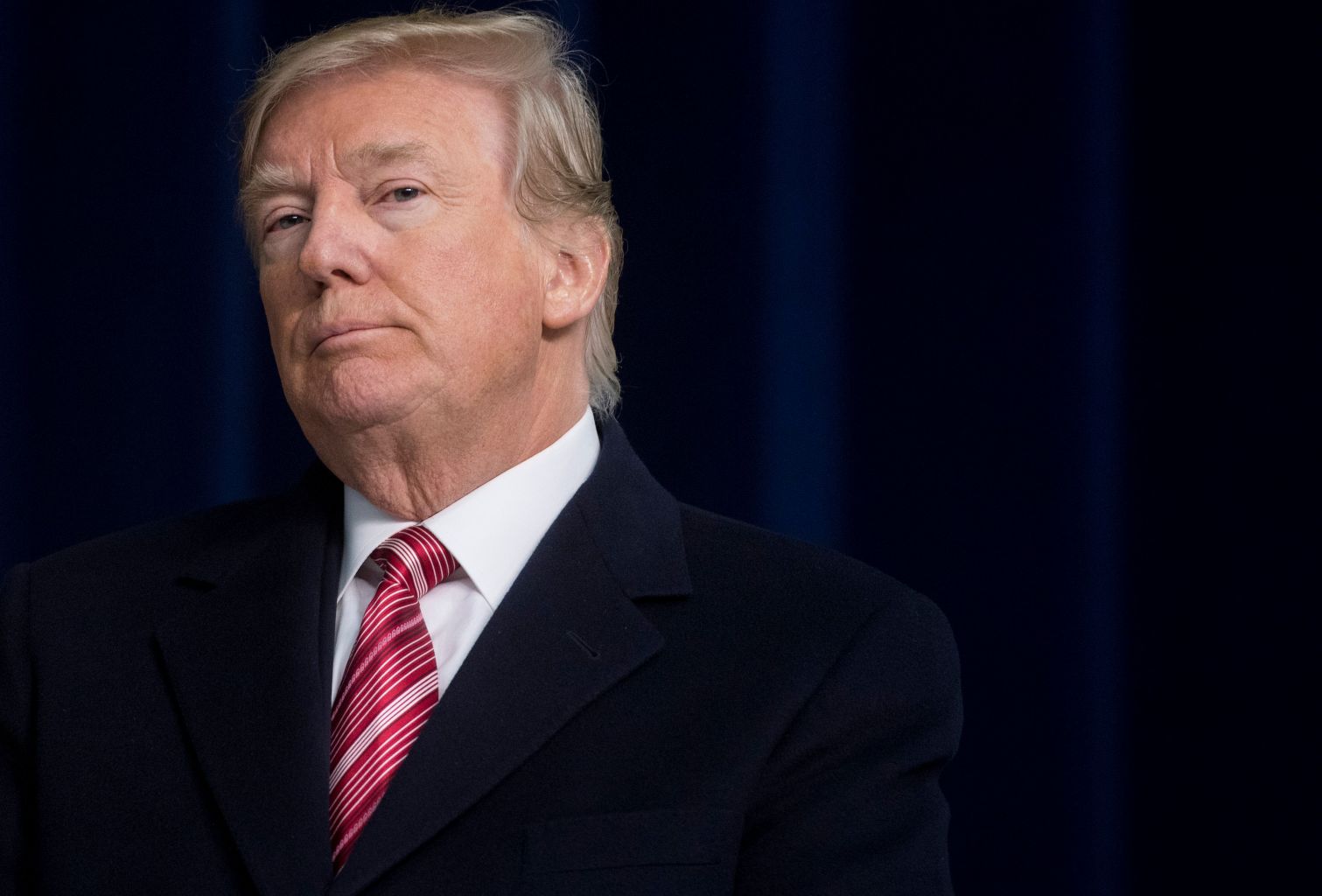Trump shifts from the bellicose, says he's open to talks with North Korea
Sign up now: Get insights on Asia's fast-moving developments

When US President Donald Trump bizarrely declared himself a "very stable genius" on Twitter last weekend, he opened a door for journalists who cover him.
PHOTO: AFP
SEOUL - In a shift from his usual bellicose rhetoric, United States President Donald Trump said he was open to direct talks with North Korea - though not without prerequisites - and voiced hope that the two Koreas would take their high-level talks tomorrow beyond the Olympics.
"Sure, I always believe in talking," Mr Trump told reporters at a televised press briefing from Camp David on Saturday, while stressing that the US maintained a very firm stance and North Korea leader Kim Jong Un "knows I'm not messing around".
"If something can happen and something can come out of those talks, that would be a great thing for all of humanity. That would be a great thing for the world. Very important," he said.
His optimistic note marked a shift from his earlier reactions to Mr Kim's suggestion on New Year's Day that the North send a delegation to the Winter Olympics hosted by the South, even as he warned at the same time of the nuclear button he had at his desk.
That elicited a response from Mr Trump that, "I too have a Nuclear button, but it is a much bigger & more powerful one."
The change in his tone Saturday has fanned hopes that the first inter-Korea talks in two years will not only pave the way to reconciliation but also open the door to direct talks between North Korea and its sworn enemy, the US.
North and South are set to meet at the truce village Panmunjom on South Korea's side of the border tomorrow - a day after Mr Kim's reported 34th birthday - to discuss the North's participation in next month's Winter Olympics.
Pyongyang informed Seoul on Sunday that it would send a five-member delegation led by Mr Ri Son Gwon, chairman of the Committee for the Peaceful Reunification. Representing the South will be Unification Minister Cho Myoung Gyon and four other officials.
Prime Minister Shinzo Abe, a staunch supporter of Mr Trump's maximum pressure policy against North Korea, welcomed Pyongyang's willingness to cooperate on the Pyeongchang Olympics but warned against talks for talk's sake. He said in an NHK interview aired yesterday that the only thing which would give the talks meaning is concrete action by Pyongyang to abandon nuclear weapons.
The pro-rapprochement South Korean government has been quick to embrace Pyongyang's overture, hoping to thaw ties that have been frozen for over two years because of the North's persistent nuclear and missile tests.
Experts, however, have warned that Pyongyang's move is meant to drive a wedge between Seoul and its key ally, Washington, which under Trump has maintained a hawkish stance.
Professor Lee Jung Hoon from Yonsei University's Graduate School of International Studies told The Straits Times that Mr Trump's latest rhetoric is "not a departure from the position he has taken over the past year".
While emphasising the need for "maximum pressure" on the North, Mr Trump has also asserted that the policy should go with "maximum engagement" with the regime's leadership to steer the country towards nuclear disarmament.
Prof Lee said: "The US remains very firm and vigilant when it comes to the nuclear threat. But because the South Korean government has taken an approach to thaw relations and engage in discussions, the US as an ally of South Korea is not trying to block it off. That's as far as we can surmise."


